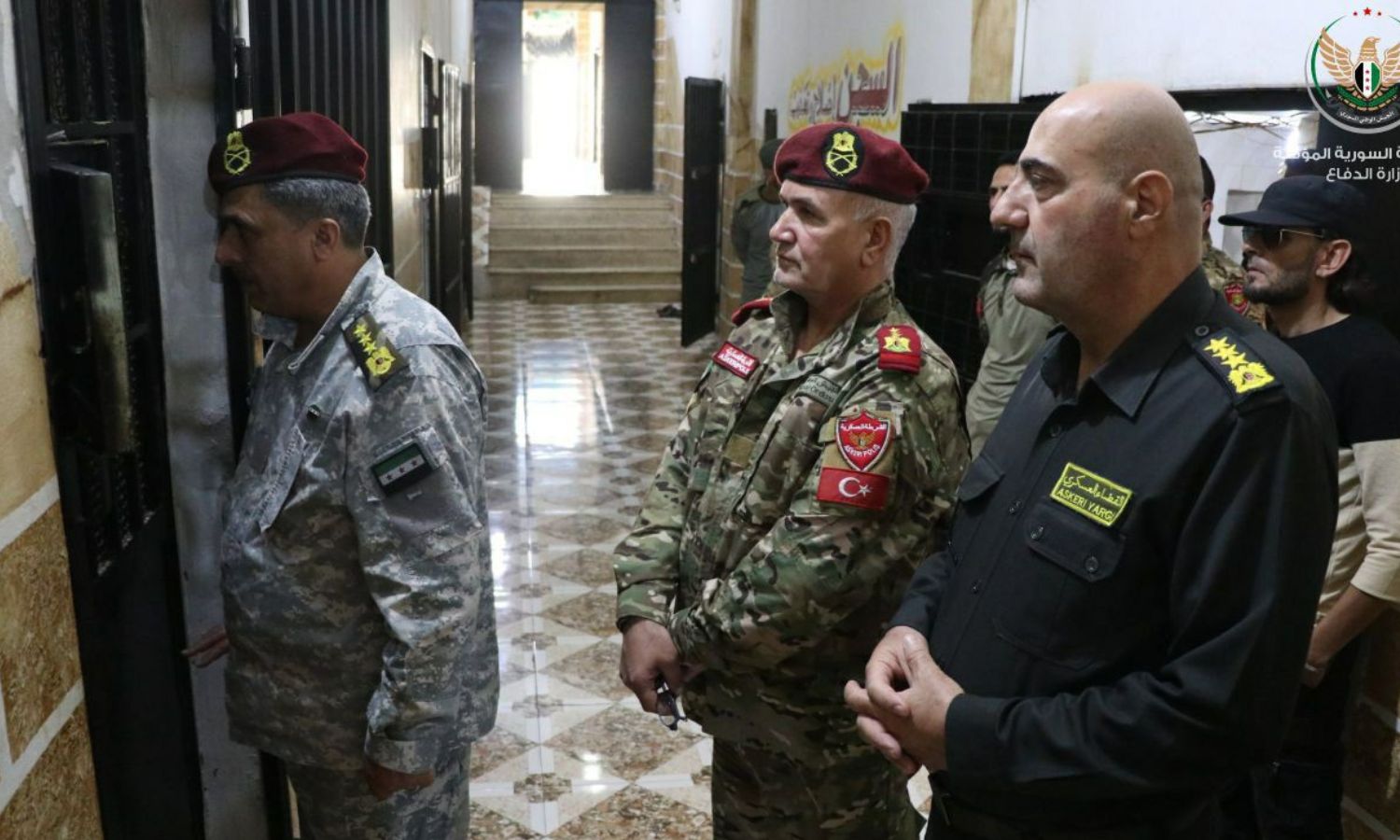The central prison in Azaz, located in the northern countryside of Aleppo, experienced a tumultuous situation on Monday, as reports emerged of an attempted armed rebellion among inmates.
According to local social media and Telegram channels prevalent in the area, the Levant Front faction dispatched groups to the prison to intervene after prisoners, notably members of the “civil police” captured earlier, attempted to incite unrest.
Enab Baladi’s correspondent in Azaz clarified that the prison, under the jurisdiction of the “civil police” of the Syrian Interim Government, is situated to the north of Azaz.
Colonel Ahmed Karoui, head of Azaz’s security directorate, informed Enab Baladi that the incident stemmed from an attempted breakout and unrest among inmates housed in the “drugs” wing. Still, the situation was swiftly brought under control. He emphasized that there were no clashes and prisoners did not gain access to any weapons, asserting that normalcy has since been restored.
This incident is not isolated, as similar escape attempts or disturbances have occurred in prisons under the control of the Interim Government across northern and eastern Aleppo provinces, as well as Tal Abyad and Ras al-Ain.
In a notable event on February 7, 2023, approximately 20 prisoners exploited the chaos following a severe earthquake in the region to escape captivity, mainly involving inmates suspected of affiliations with the Islamic State.
Elsewhere, in Raju prison, under the jurisdiction of the National Brigades, disobedience among inmates was reported after the earthquake, according to AFP sources. Raju prison, located in the town of Raju, currently detains around two thousand inmates, including about 1,300 individuals suspected of ties to ISIS.
Despite central prisons being directly accountable to the Interim Government, operational irregularities persist within prisons affiliated with National Army factions. These facilities, scattered across headquarters, residential buildings, and farms, have drawn criticism from human rights and humanitarian organizations due to documented violations. These include the illegal seizure of properties and homes belonging to civilians, repurposed as detention centers without consent, ranging from shrines to residential structures and other unmarked locations.
In an interview with Enab Baladi, Mohamed al-Abd al-Allah, director of the Syrian Center for Justice and Accountability, condemned the systemic torture practices in SNA’s prisons. He warned that such abuses could lead to international sanctions against the factions responsible, tarnishing the reputation of opposition forces and highlighting their alleged misconduct, including theft, abduction, and plundering, particularly affecting local residents and civilians.
This article was translated and edited by The Syrian Observer. The Syrian Observer has not verified the content of this story. Responsibility for the information and views set out in this article lies entirely with the author.


